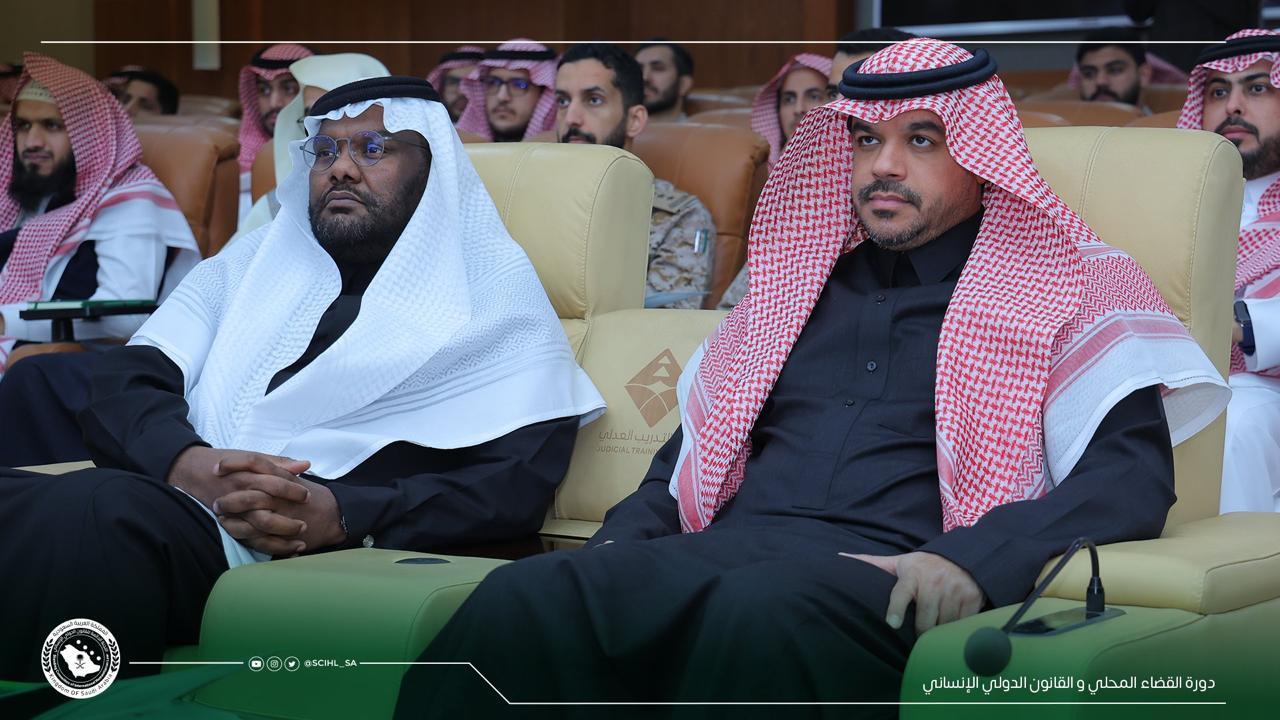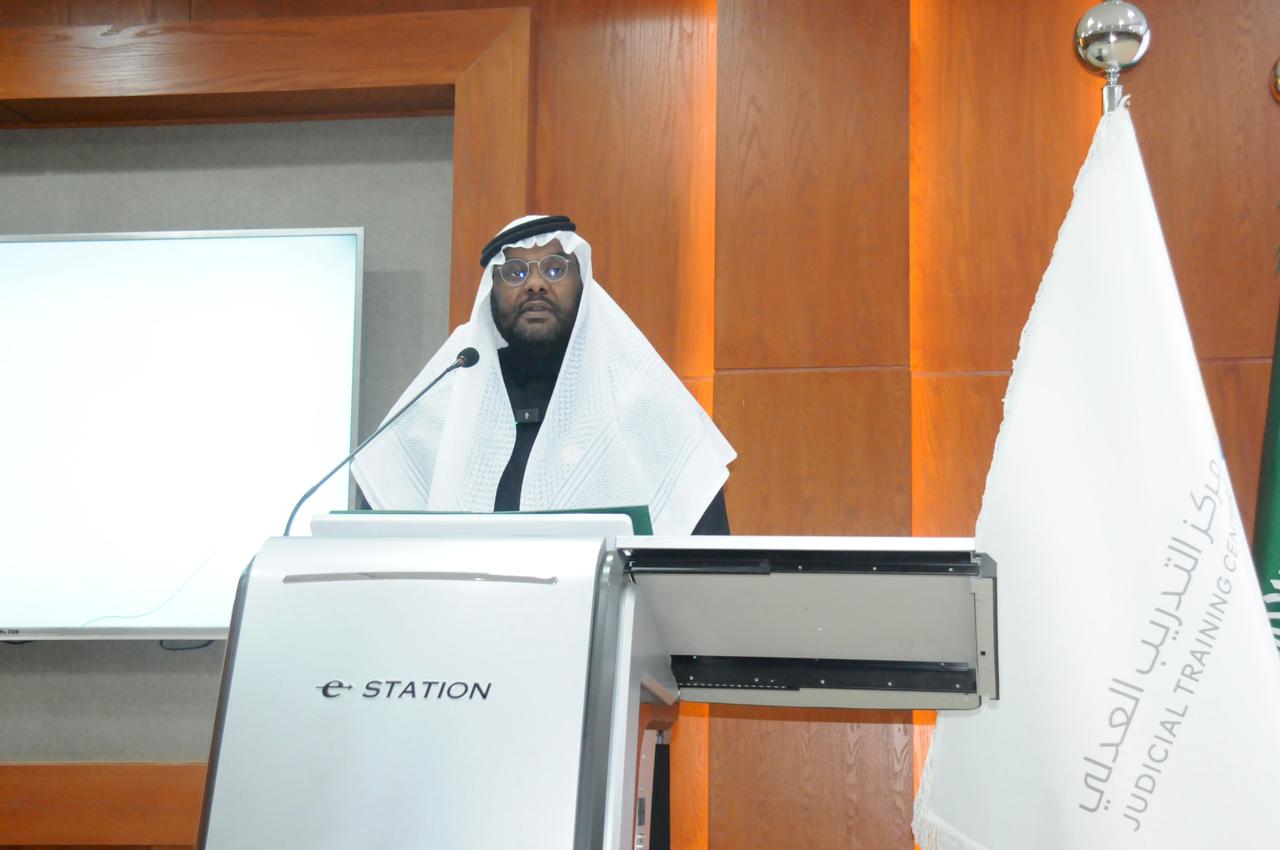Holding the Course on Domestic Justice and International Humanitarian Law in Collaboration with the Ministry of Justice

Counselor Abdullah bin Medrek Alrwaily, the Secretary-General of the Standing Committee of International Humanitarian Law, officially opened the “Domestic Justice and International Humanitarian Law” course. The course was organized by the Standing Committee of International Humanitarian Law in collaboration with the Ministry of Justice and took place at the Justice Training Center in Riyadh from February 12 to 14, 2024. Mohammad Alshalfan, the Director-General of the Center, was also present at the event.
The course aimed to enhance the skills of several Ministry of Justice and military personnel in understanding international crimes defined in international conventions, customary law, methods of international accountability, and procedures for implementing international humanitarian law within national judicial practices. Over the three-days course, the session covered various topics, including the concept of international crimes as outlined in international conventions and customary law, international legal mechanisms, law of war and the intersection with Islamic Sharia provisions. Discussions also revolved around the judiciary's role in upholding, respecting, and reinforcing international humanitarian law domestically, the criminal responsibilities it carries, and the procedures to be followed by the national judiciary in case of violations of international humanitarian law.
The course delved into topics such as the jurisdiction of domestic and international courts, highlighting best practices and drawing on pertinent international judicial experiences. The “Domestic Justice and International Humanitarian Law” course is part of the initiatives led by the Standing Committee of International Humanitarian Law to enhance understanding and education on international humanitarian law across governmental, military, and civilian sectors.

The Secretary-General of the Standing Committee of International Humanitarian Law stated that this course represents the committee's efforts to promote awareness of international humanitarian law, emphasizing its role and significance both locally and globally. He also mentioned that the committee is planning to organize multiple events aligned with its objectives, reflecting its vision and mission. Additionally, he highlighted the committee's role, international and regional engagement, and the tangible contributions it has made in events related to international humanitarian law. Furthermore, he noted that the committee has recently conducted several sessions in which affiliates from diverse sectors in Saudi Arabia participated, resulting in positive outcomes.
Alrwaily elaborated on the unwavering support that the Standing Committee of International Humanitarian Law receives from the Custodian of the Two Holy Mosques, King Salman bin Abdulaziz Al Saud, and the Crown Prince, His Royal Highness Prince Muhammad bin Salman bin Abdulaziz Al Saud. He emphasized that this support plays a crucial role in enabling the committee to fulfill its intended purpose. Alrwaily expressed that the Standing Committee is focused on the fundamental principles that guide its work, which include promoting global peace and security, reinforcing international humanitarian law, fostering productive collaboration with partner organizations worldwide, and engaging in dialogue with the United Nations regarding its diverse mechanisms for safeguarding human rights.
In wrapping up his comments, Alrwaily stated: "The Standing Committee commands significant respect from both regional and international entities, reflecting Saudi Arabia's esteemed position due to its commendable efforts and strategic directives aimed at mitigating conflicts and tensions and their adverse impacts on societies worldwide. We collaborate with our partners to implement these strategies on the ground, noting that they are well-received and supported by numerous international bodies and organizations dedicated to upholding international humanitarian law, as they advocate for the right to a secure life free from conflicts."
